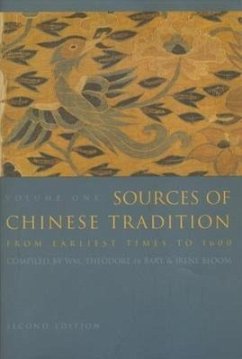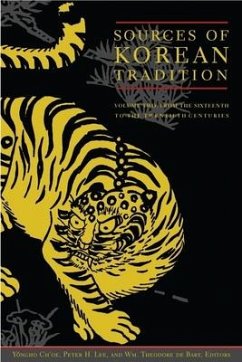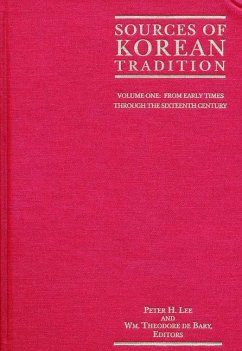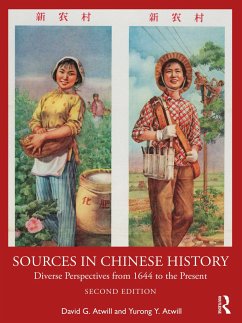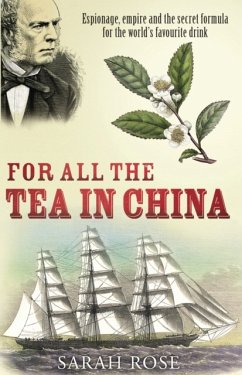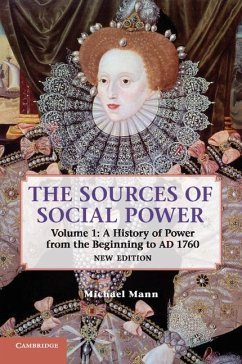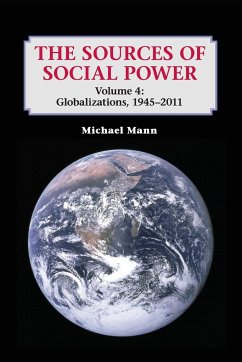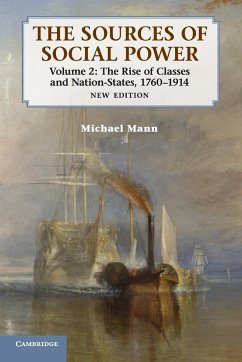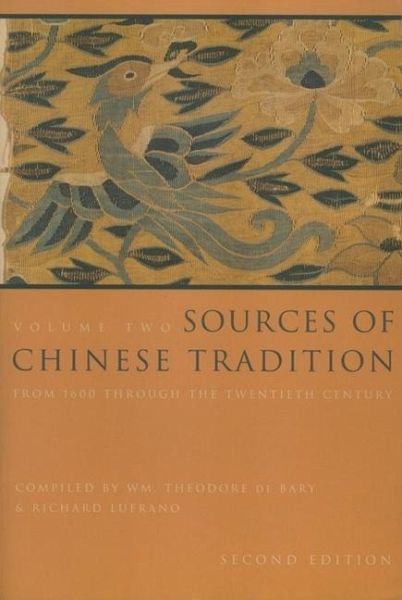
Sources of Chinese Tradition
From 1600 Through the Twentieth Century
Herausgeber: Lufrano, Richard; Bary, Wm. Theodore De

PAYBACK Punkte
27 °P sammeln!
Features source readings on history, society, and thought in China. This book aims to bring together source texts from more than three centuries of Chinese history, with opening essays by China authorities providing context for readers not familiar with the period in question. It covers Sino-Western contacts in the 17th century.



